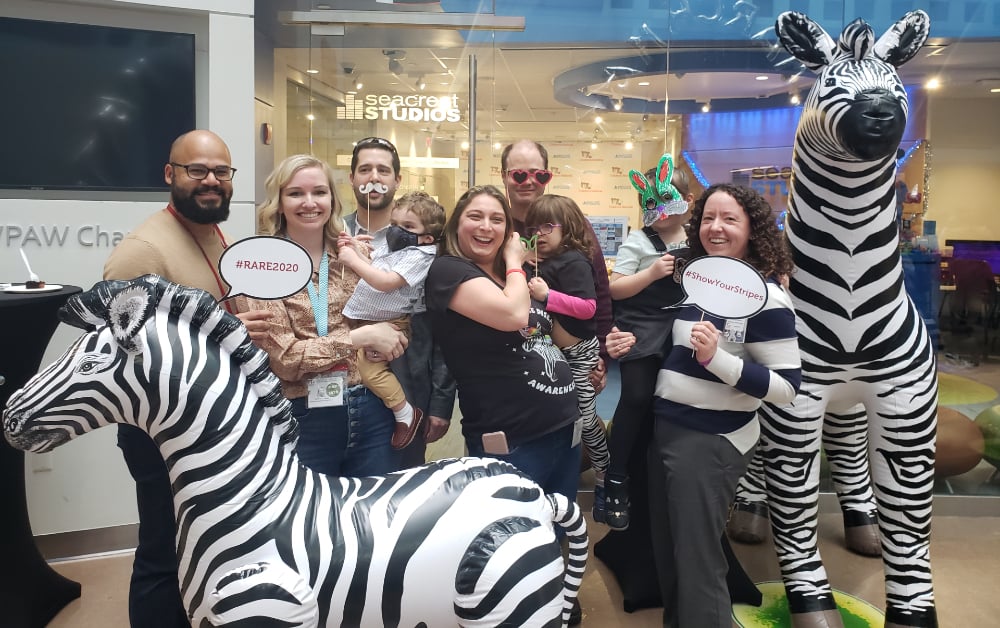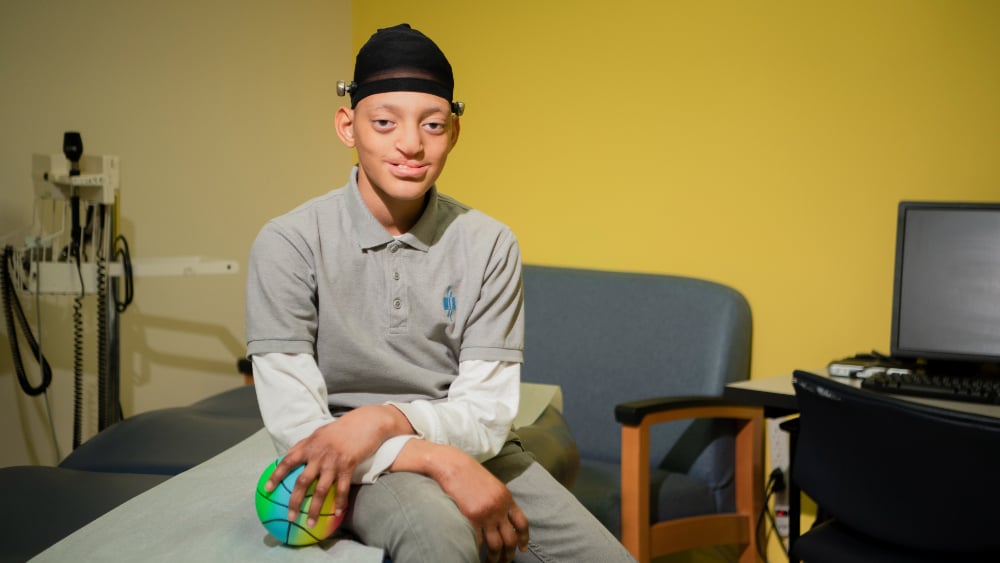Condition
Pediatric Crouzon Syndrome
What Is Crouzon Syndrome?
Crouzon syndrome is a rare birth defect that causes premature fusion (closing) of several sutures (joints) in a baby’s skull. It also causes bones in the face not to grow forward, resulting in malformed eye sockets and a large forehead.
What Causes Crouzon Syndrome?
Mutated genes cause Crouzon syndrome, and children inherit the genetic disorder from their parents. The mutated genes cause skull sutures to fuse together prematurely (craniosynostosis). The coronal (from ear to ear) sutures are always involved, along with one or more others.
Symptoms of Crouzon Syndrome
Children with Crouzon syndrome may have one or more of these symptoms:
- Misshapen head: wide across the front and short from front to back
- Bulging, wide-set eyes
- Bone deformities in the middle of the face
- Jaw deformities such as a receding upper jaw or a protruding lower jaw
- Sleep apnea or difficulty breathing because of facial deformities
How Is Crouzon Syndrome Diagnosed?
Physicians usually detect Crouzon syndrome at birth based on its distinctive physical signs. After examining and measuring your baby’s head, your pediatrician will use other testing methods for an accurate diagnosis, because skull deformities appear in other similar syndromes.
At Children’s National, our pediatric team uses the following tools to help diagnose Crouzon syndrome and any related syndromes:
- X-rays to check for fused (missing) sutures on the sides or other areas of the head, or ridges along these sutures
- Diagnostic imaging, especially CT scans, to check for fluid and pressure inside the skull, fused sutures, or ridges along sutures
- Genetic tests to determine what syndromes may be involved for an accurate diagnosis and treatment
Treatments for Crouzon Syndrome
Treatment for Crouzon syndrome focuses on reducing pressure inside the skull, correcting the skull and facial deformities, and ensuring proper breathing. At Children’s National, our treatment options include:
- Surgery on the skull usually before 18 months of age
- Minimally invasive surgery for infants younger than 3 months to open skull sutures for normal skull and brain growth
- Traditional surgery for infants 6 months or older to correct the skull’s shape
- Surgery to correct facial and jaw deformities or sleep apnea
- Orthodontic surgery to correct dental problems
- Speech therapy to help with speech and language development
Departments that Treat Crouzon Syndrome

Rare Disease Institute - Genetics and Metabolism
Children's National Rare Disease Institute (CNRDI) is a first-of-its-kind center focused exclusively on advancing the care and treatment of children and adults with rare genetic diseases.

Cleft and Craniofacial Program
The Cleft and Craniofacial Program at Children's National brings together experts from 10 pediatric disciplines to provide complete care for children with craniofacial disorders. Our multidisciplinary pediatric team helps more than 400 children every year.



